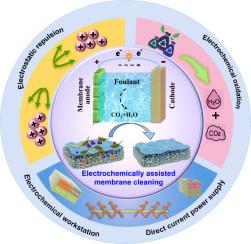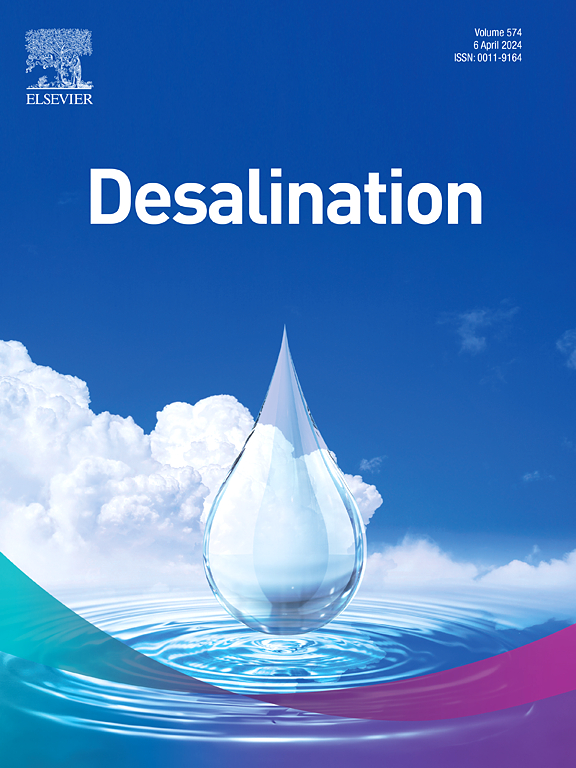A critical review on the mechanism, progress and challenge of electrochemically assisted membrane cleaning in water treatment
IF 8.3
1区 工程技术
Q1 ENGINEERING, CHEMICAL
引用次数: 0
Abstract
Membrane fouling is a significant challenge in membrane-based water treatment processes, significantly impairing water recovery efficiency and reducing membrane lifespan. Electrochemically assisted membrane cleaning (EAMC), which employs electrons as the reaction medium, has demonstrated effectiveness in removing various membrane foulants, thereby mitigating fouling. As an emerging technique free of solvents and chemicals, EAMC has received considerable research attention, with a large number of studies published in recent years. However, reviews in this field remain scarce, underscoring the need for an updated study to guide future research. This article offers a critical review of the recent advancements in EAMC. It begins with an exploration of the mechanisms of membrane fouling induced by different contaminants, followed by a thorough examination of the operational principles and factors of EAMC. The review then delves into the fouling removal mechanisms and the practical applications of EAMC, evaluates the strengths and limitations of this innovative approach, and concludes with a discussion of the challenges and potential future directions in EAMC research. This work provides valuable insights into the development and application of EAMC technology.

综述了电化学辅助膜清洗在水处理中的机理、研究进展及面临的挑战
膜污染是膜基水处理工艺中的一个重大挑战,它严重影响了水的回收效率,降低了膜的使用寿命。电化学辅助膜清洗(EAMC)采用电子作为反应介质,已被证明可以有效去除各种膜污染物,从而减轻污染。作为一种新兴的无溶剂、无化学物质的技术,EAMC受到了广泛的关注,近年来发表了大量的研究成果。然而,这一领域的综述仍然很少,强调需要更新的研究来指导未来的研究。本文对EAMC的最新进展进行了评述。它首先探索由不同污染物引起的膜污染机制,然后是对EAMC的操作原理和因素的彻底检查。然后深入探讨了EAMC的除垢机理和实际应用,评估了这种创新方法的优势和局限性,最后讨论了EAMC研究的挑战和潜在的未来方向。这项工作为EAMC技术的发展和应用提供了有价值的见解。
本文章由计算机程序翻译,如有差异,请以英文原文为准。
求助全文
约1分钟内获得全文
求助全文
来源期刊

Desalination
工程技术-工程:化工
CiteScore
14.60
自引率
20.20%
发文量
619
审稿时长
41 days
期刊介绍:
Desalination is a scholarly journal that focuses on the field of desalination materials, processes, and associated technologies. It encompasses a wide range of disciplines and aims to publish exceptional papers in this area.
The journal invites submissions that explicitly revolve around water desalting and its applications to various sources such as seawater, groundwater, and wastewater. It particularly encourages research on diverse desalination methods including thermal, membrane, sorption, and hybrid processes.
By providing a platform for innovative studies, Desalination aims to advance the understanding and development of desalination technologies, promoting sustainable solutions for water scarcity challenges.
 求助内容:
求助内容: 应助结果提醒方式:
应助结果提醒方式:


